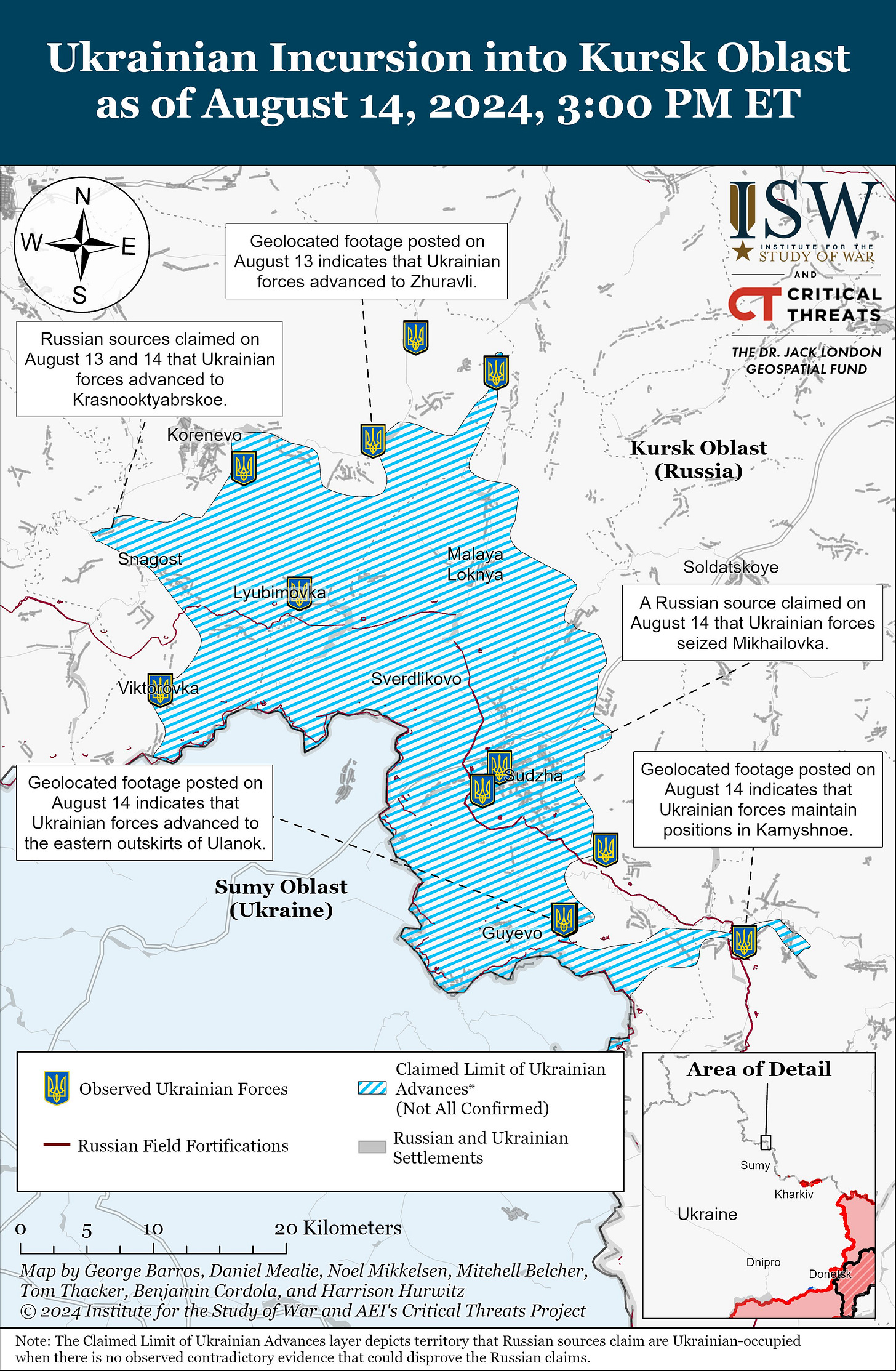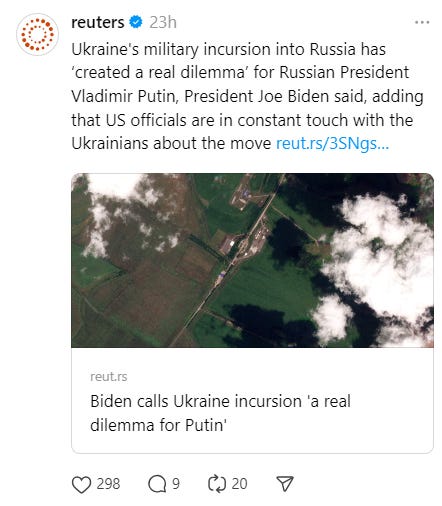Hi everyone!
Thank you for being here.
Each week, in The View from the Front podcast, I cover defense news in a sophisticated and balanced manner, with an over-arching goal to unify our country.
Besides covering the news in a respectful way, I end each show with some motivation and wisdom. Hope you enjoy the show! #SupportOurMilitary #DefendDemocracy
Also, huge shout out to those of you whose paid subscriptions make it possible for me to devote time and resources to researching and compiling the news each week.
If you’d like to support the show:
You can subscribe with Substack: https://stanrmitchell.substack.com/subscribe
You can also now sign up at Patreon: https://www.patreon.com/stanrmitchell
Or send a tip through Venmo (@authorstanrmitchell): https://account.venmo.com/u/authorstanrmitchell
And there’s even a PayPal link you can use: https://paypal.me/StanRMitchell.
Finally, I’m still trying to grow the show. Please rate and leave comments on SPOTIFY, APPLE, or wherever you listen.
You can listen here, or you can find the podcast on your favorite channel below by searching for The View from the Front:
Selected source notes for podcast and transcript above.
Ukraine news:
Ukraine’s Kursk attack surprised Russia and perhaps some of its backers
A week on, as Russian forces scrambled to respond to the sneak attack after days of fierce fighting, Ukraine’s top military commander said that his troops were in control of 1,000 square kilometers (386 square miles) of territory.
…
Kyiv’s aims are not entirely clear. Some analysts speculate that the incursion aims to strengthen Ukraine’s hand in future peace negotiations. Military experts agree that it should provide some relief for embattled Ukrainian troops by drawing enemy soldiers away from the frontline.
Ukraine’s Foreign Ministry says the operation is to protect against long-range strikes launched from Kursk. “Ukraine is not interested in taking the territory of the Kursk region, but we want to protect the lives of our people,” spokesperson Heorhii Tykhyi said, according to local media.
Ukraine turns the tables on Russia
By one estimate, Ukraine has seized more Russian territory in a week than Russia has captured in Ukraine in this whole calendar year.
…
The operation has led Russia’s forces to carry out bombing raids on its own territory — after months of pummeling Ukraine. “The incursion clearly has achieved at least one Ukrainian objective: breaking through the haze of Russian complacency about the war — which has had limited impact on the lives of most ordinary Russians,” my colleagues wrote earlier this week.
“Since last week, Russians, rather than Ukrainians, have taken to social media and blogs to wonder whether the nuclear plant nearest the combat area is safe, to watch videos of their young conscript soldiers taken prisoner and civilians stripped of shelter as the Kursk region disappears behind an active front line,” wrote Anna Nemstova in the Atlantic.
Ukraine Strikes Russian Airfields Hosting Hypersonic Missile Carriers
U.S. news:
U.S. Seeks to Deter Regional War in Middle East
There is still time for diplomacy to work in the Middle East, Pentagon Press Secretary Air Force Maj. Gen. Pat Ryder said today during a news conference.
U.S. forces are moving into the U.S. Central Command's area of responsibility as a deterrence measure, he said. The Air Force has moved F-22 Raptor aircraft into the region, and the U.S. Navy is moving the USS Abraham Lincoln Carrier Strike Group — centered around F-35C Lightning II aircraft — to the region, as well. The USS Georgia, a guided missile submarine, is also progressing there.
Today, there are approximately 40,000 U.S. service members in the Centcom region, Ryder said.
The Defense Department continues to closely monitor the situation in the Middle East. Secretary of Defense Lloyd J. Austin III is in almost daily contact with Israeli Defense Minister Yoav Gallant and other partners in the region, Ryder said.
"The U.S. remains intensely focused on de-escalating tensions in the region, while also remaining focused on securing a cease-fire as part of a hostage deal to bring all of the hostages home and to end the war in Gaza," the general said.
In his most recent phone call with Gallant, Austin assured the Israeli leader of the United States' commitment to take every possible step to defend Israel. He also noted the strengthening of U.S. military force posture and capabilities throughout the Middle East in light of escalating regional tensions, Ryder said.
"These U.S. military force-posture adjustments are designed to improve U.S. force protection, to increase our support for the defense of Israel, and to ensure the United States is prepared to respond to a wide variety of contingencies," Ryder said.
U.S. Will Work With African Nations to Protect Interests, Encourage Cooperation
The United States has vital interests on the African continent and will protect those interests in concert with African nations, said the deputy assistant secretary of defense for Africa during an interview earlier this month.
Maureen Farrell emphasized that Africa — with more than 1.5 billion people in 54 nations who speak hundreds of languages and have hundreds of cultures — is a diverse continent where a one-size-fits-all approach will not work.
Still, Farrell said there are commonalities. Nations in some sub-regions and particular climate belts share concerns, and often the U.S. government works with the nations in all aspect of government — from the economy to diplomacy to security and more, she said.
But all of this is done "based on the feedback from our African colleagues, as opposed to what might make sense from a policy maker's desk here in Washington, where if you haven't worked on Africa in depth, it can all blend together without the nuance that one clearly needs to understand to be effective," she said.
Listening and engaging with African leaders is an important part of Farrell's job, and it is also an important aspect of the strategy of Marine Corps Gen. Michael Langley, commander of U.S. Africa Command. Farrell and Langley and Air Force Gen. CQ Brown, Jr., just returned from the African Chiefs of Defense Conference held in Gaborone, Botswana, where they did listen to and engage with African leaders.
"It was a fantastic opportunity for the chairman and the combatant commander to hear directly from their uniformed counterparts at a very senior level," Farrell said. The two U.S. leaders, along with Farrell, were able to hold many bilateral talks with African chiefs of defense and have focused discussions. The discussions on West Africa were particularly important, she said, as Niger, Mali and Burkina Faso following recent coups have withdrawn from the Economic Community of West African States.
"There are some interesting politics and threat information at play in terms of the withdrawal of these three states from ECOWAS," she said. The African nations in the region and beyond, Farrell said, are looking at the political implications of those policy decisions for the uniformed military services in the region.
African leaders very much want African solutions to African problems, Farrell said, and many nations are working together. She noted that two constellations of nations offered different approaches to the troubles in the Democratic Republic of the Congo. The Southern African Development Community has sent peacekeeping forces to the Eastern region of Congo. SADC is also sending peacekeepers to Mozambique where an ISIS-affiliated uprising has killed thousands since 2017 and displaced more than 800,000.
African nations are also working together in the African Union Transition Mission in Somalia.
"These are all African-led initiatives," Farrell said. "There are plenty of examples of African leadership on security solutions."
One continent-wide problem is climate change. The Sahara is growing, and the Sahel nations are feeling that effect, Farrell said. This has meant increased migration and struggles for resources from water to food to energy.
"The expansion of the Sahel is posing resiliency challenges for the people of the Sahel and coastal West Africa and the broader the West African region." Farrell said. "The drought problems afflicting the Horn of Africa are creating increased security pressures. Add to this the economic challenges from the global food crisis caused by the Russia and Ukraine war. All these issues have squeezed systems in Africa."
She said the continent is also still feeling the aftereffects of the COVID-19 pandemic. "All of these economic challenges create friction in societies that makes easy fodder for conflict," she said. "I think our security service counterparts on the continent are very cognizant of the pressure of resource constraints and what that creates in terms of security challenges for them. So, it's a reality that we're acknowledging as a factor in a spark for conflict, usually over water."
She pointed to Lake Chad — a main source of water for Niger, Chad and Nigeria — as an example. The lake has dramatically diminished in size in recent years placing enormous economic and political pressures on these countries. "If you look over time at the size of Lake Chad, you can see it has shrunk in a matter of years, not multiple decades, but just a handful of years," she said.
The future in Africa involves more African leadership, Farrell said. The United States is listening to and deferring to African leaders. "Our African colleagues are leading, and I think that's only going to grow," she said. "I think the challenge for us in Washington and for our partners and allies is to appropriately support those mechanisms, as opposed to asserting our own particular worldview."
Africa has its challenges, but it has opportunities as well. She noted that Turkey and the United Arab Emirates are investing in the continent. India, Japan and South Korea are active economically and diplomatically with African nations. "These are dynamics that I think we have to pay attention to," she said. "There's no question that the rest of the globe sees the importance of the continent, and not just for resource extraction, but for diplomatic maneuvering, and economic investment. Those are trends that I think have to be part of the consideration for DOD."
China and Russia are also interested in expanding influence on the continent. "We recognize that Africans have a choice, and we are choosing to engage with African partners for our mutual benefit," Farrell said. "It's part of the landscape that there are other actors engaged. We're interested in partnering with countries such as Angola, with Kenya, with Cote d'Ivoire, with Nigeria and with many others, because of the importance that we place on these bilateral relationships, and in many cases, those countries' roles in the broader region."
"There could be threats emanating from some of those other actors' engagements on the continent, but in general, our priority is to engage with African partners for our own mutual benefit," she continued.
Words of encouragement:
Let’s end the show with some words of encouragement, because I know that life is hard and sometimes, you just need to hear something that will lift you up.
I always like to share some verses from the Bible, or quotes that touch on the Bible or Jesus, because my Christian faith has become such a source of strength and wisdom and calm for me during the past couple of years, since losing my Mom and now worrying an awful lot about my Dad and his serious memory problems.
I’m betting you have something really challenging going on in your life, as well. So, I hope by sharing some of these, it might encourage you to get into the Bible yourself. Because I think it’ll change your life, if you let it.
And, I always like to end each week’s notes with this one:

If you can, consider at some point becoming a paid subscriber.
Here are those links again if you’d like to support the show:
You can subscribe with Substack: https://stanrmitchell.substack.com/subscribe
You can also now sign up at Patreon: https://www.patreon.com/stanrmitchell
Or send a tip through Venmo (@authorstanrmitchell): https://account.venmo.com/u/authorstanrmitchell
And there’s even a PayPal link you can use: https://paypal.me/StanRMitchell.
Finally, I’m still trying to grow the show. Please rate and leave comments on SPOTIFY, APPLE, or wherever you listen.
Also, all posts are free, so feel free to share. (And in that line of thinking, it seems like all the social media sites I’m on throttle down my posts when they have a link to Substack, so if you could forward this to a person or two that might be interested, and ask them to consider signing up for free, it’d sure help me a lot!)
That’s it for this edition.
Love my moderate, optimistic view of politics and want to know more about how I see things?
Go here:
Dealing with PTSD? Emotionally or mentally at rock bottom? Here’s the link to my faith newsletter: Be like Ozzie; go near your master. (The power of prayer. Part 1.)
As a reminder, please be kind and try your best to love your fellow Americans.
So many men and women have sacrificed, fought, and died to keep this country together the past 240-plus years. Please work daily to unite our country again. The vast majority of Americans are decent, loving, great people.
Also, please try to be a better person each and every day. Try to be kinder on social media and how you interact with others with whom you disagree.
Please join me again in our next episode, and please stay safe until then.
Love and peace,
Stan R. Mitchell
P.S. Don’t forget that I've also written twelve fast, exciting books.
Finally, I also write a faith blog about God and the Bible. (As a child, I was wounded badly by the church and left it to study other religions, before returning to the faith of my roots.)
#mil #podcast #military #ukraine #china #russia #RussiaUkraineWar #motivation #inspiration #Bible #usmc #army #navy #airforce #politics #defensenews #OSINT #theviewfromthefront





























Share this post